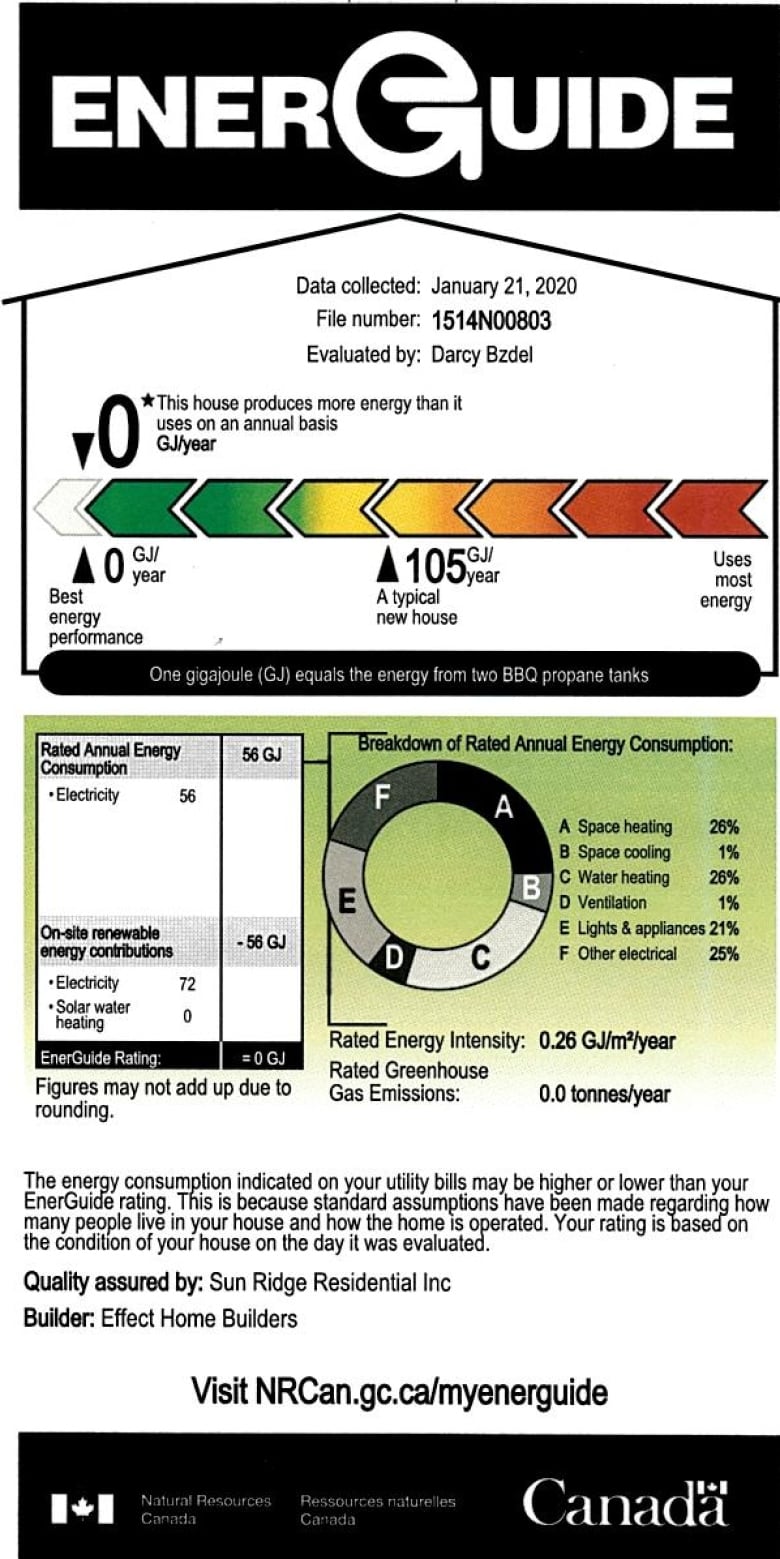Home energy labels would lower emissions, reduce mystery for buyers, says Edmonton mayor – CBC.ca
Energy Disrupter
Mandatory energy labels for all homes is one of a handful of “big ideas” that Edmonton’s outgoing mayor is leaving behind for the next city council.
The suggestion for a mandatory labelling policy — which could affect every homeowner in the city and thousands of people working in fields linked to homes — was contained in a memo on energy written by Mayor Don Iveson.
It was one of several transition memos that he released last week.
Without energy efficiency data, homebuyers cannot easily compare properties or determine which retrofits or rebates might be worthwhile, Iveson told reporters on Friday.
“It’s been a huge gap for a long time in the biggest financial decision that most households ever make,” he said.
Mandatory labelling is one of the policies Iveson said he wished could have happened sooner, noting it would benefit homebuyers and help the city reduce greenhouse gas emissions by accelerating a shift to more energy-efficient buildings.
Other proponents say it could address a failure to value energy efficiency in homes, which consume almost 20 per cent of all energy used in the city.
But obstacles to such a policy abound, including jurisdictional issues and opposition from those selling inefficient homes.

Who could make labels mandatory?
In 2016, as part of the Pan-Canadian Framework on Clean Growth and Climate Change, the federal government and ministers from provinces and territories committed to working together toward a goal of requiring energy-use labels on buildings by 2019 at the earliest.
“I think it’s safe to say the jurisdictional issues are why we haven’t seen that delivered,” said Kevin Lockhart of Efficiency Canada, a non-profit based at Carleton University’s Sustainable Energy Research Centre.
It’s not that cities like Edmonton don’t want to regulate labelling, said Dave Turnbull, an energy adviser who sits on the board of the sustainability non-profit Built Green Canada. But building codes and real estate sale transactions are in provincial jurisdiction, not municipal.
And provincially, as well as in some U.S. states, lobbyists from the real estate industry have pushed back against a labelling policy.
In 2018, the Ontario Real Estate Association lobbied against a proposal that would have made energy audits mandatory before selling homes and required results to be tied to homes’ listings. At the time, the industry group argued the program would create red tape and hurt owners of older homes.
In a blog post, the association said its staff and volunteers lobbied almost every member of the Ontario cabinet, including then-premier Kathleen Wynne.
When the Ontario government repealed the act that included the policy, the association celebrated it as “a big win.”
The federal government faces a similar jurisdictional challenge, but the Liberal Party promised that if re-elected, it would require EnerGuide labels on homes at the time of sale. (EnerGuide is the federal government’s rating and labelling program for products, vehicles and homes.)
City strategies
Cities like Edmonton could require energy audits and labelling for new homes as part of the permitting process, said Tom-Pierre Frappé-Sénéclauze, the director of buildings and urban solutions at the Pembina Institute, a clean energy think-tank.
“It could increase the number of homes that have a rating and make sure that [real estate agents] understand what the rating is and use it when they talk to prospective buyers or sellers,” he said.
Through a voluntary program called the Home Energy Retrofit Accelerator, some Edmontonians have already shared their homes’ energy ratings on a citywide map and exploring mandatory labelling bylaws is an action item in the city’s energy transition strategy.

Iveson said resistance to mandatory labelling from developers and builders has been decreasing over time.
Sydney Bond, the general manager at Effect Home Builders, which specializes in green homes, and the president of the Edmonton branch of the Canadian Home Builders’ Association, said most home builders now support the idea.
“For the most part, builders understand that a typical newly-built home today is 47 per cent more efficient than homes that were built in 1985,” she said.
Bond said a mandatory labelling system should be designed to be simple for homeowners, builders and real estate agents to understand.
“We have to make sure that it’s easy for people because we don’t want to be adding complicated barriers to homeownership, purchasing or transfer,” she said.
Original Source: https://www.cbc.ca/news/canada/edmonton/energy-labels-should-be-mandatory-on-all-homes-edmonton-mayor-1.6191076













